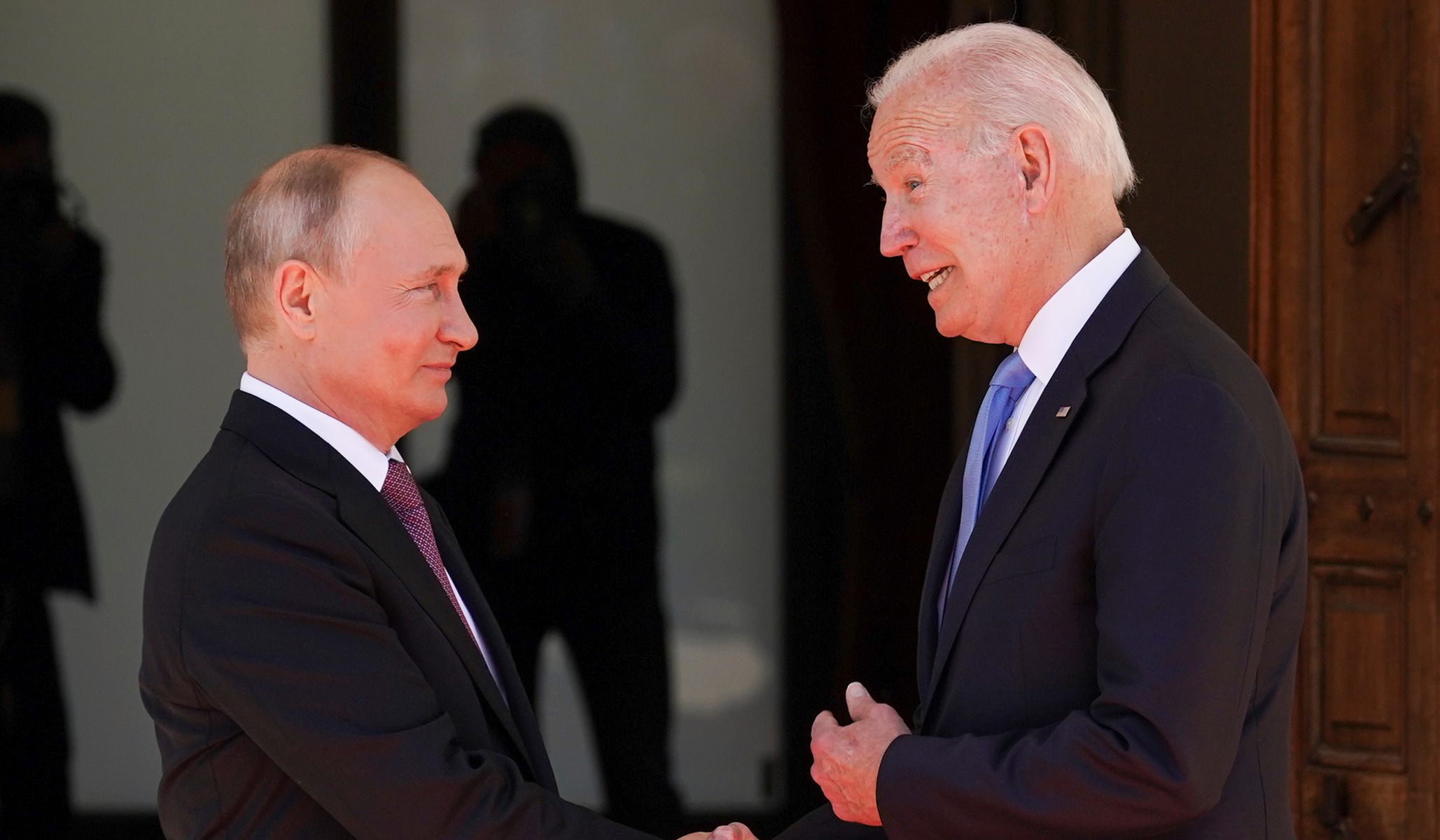On the campaign trail, Joe Biden pledged to get tough with Russia, boasting that he had “served as a founding member of a Trans-Atlantic Commission on Election Integrity to fight back against Russia’s attacks on Western democracies.” Shortly after taking office, Biden called Vladimir Putin and, in the White House’s characterization, “made clear that the United States will act firmly in defense of its national interests in response to actions by Russia that harm us or our allies.” And in March, Biden promised Putin “will pay a price” for Russia’s interference in the 2016 presidential election.
But as president, Biden’s actions towards Putin and Russia haven’t always been so tough or uncompromising. The Biden administration did enact additional sanctions in April and offered statements of support and more funding for Ukraine. But even when announcing sanctions, Biden was quick to emphasize that he wants to avoid any larger conflict with Putin. “I was clear with President Putin that we could have gone further, but I chose not to do so, to be — I chose to be proportionate. The United States is not looking to kick off a cycle of escalation and conflict with Russia. We want a stable, predictable relationship… Throughout our long history of competition, our two countries have been able to find ways to manage tensions and to keep them from escalating out of control.”
And on other fronts, the administration has demonstrated an eagerness to soothe tensions with Putin. Biden almost immediately accepted Putin’s offer to extend the New Strategic Arms Reduction Treaty for five years, dropped U.S. opposition to the Nord Stream 2 pipeline making Europe more dependent upon Russian energy exports, declined to pursue Putin’s personal wealth through sanctions, increased U.S. imports of Russian oil, and canceled the Keystone Pipeline. Despite Biden’s promise to restore U.S. alliances, leaders in Europe are fuming about a variety of policy snubs from Biden and accuse the president of being disloyal to the Transatlantic alliance.
And the president did not mention Russia at all in his recent address to the United Nations.
Melinda Haring, the deputy director of the Atlantic Council’s Eurasia Center, wrote earlier this month that the U.S. is governed by “an administration that decidedly wants to ignore Russia.” Ignoring Russia does not constitute getting tough with Putin!
And now we learn that the Biden administration wanted to use Russian military bases in Tajikistan and Kyrgyzstan as part of the “over-the-horizon” approach to terrorism threats in Afghanistan – making U.S. counterterrorism operations dependent upon Russian cooperation.
The Pentagon’s top military officer discussed with his Russian counterpart an apparent offer from Russian President Vladimir Putin to use his military’s bases in Central Asia to respond to any emerging terrorist threats in Afghanistan, U.S. officials said.
Gen. Mark Milley, chairman of the Joint Chiefs of Staff, raised the subject at the request of President Biden’s National Security Council staff in his meeting last Wednesday with Russian Chief of General Staff Valery Gerasimov, the U.S. officials said.
Gen. Gerasimov was noncommittal during the Helsinki meeting, the U.S. officials said. A Kremlin spokesman declined to comment.
The Russian military has forces stationed at the 201st Military Base in Dushanbe, Tajikistan, and drones and helicopters stationed at Kant Air Base in Kyrgyzstan.
On paper, U.S. military forces operating from those bases would prove advantageous; Dushanbe is 280 miles from Kabul and Kant is 653 miles from Kabul, while Al Udeid air base in Qatar is almost 1,000 miles from Kabul.
But the problem with stationing U.S. forces on Russian military bases in Tajikistan and Kyrgyzstan is that it would make U.S. counterterrorism operations in the region dependent upon Russian cooperation. Vladimir Putin or his successor would be able to pull the plug at any time, giving him enormous leverage over America’s ability to respond to terrorist threats in Afghanistan and the surrounding region. Running U.S. counterterrorism operations from Russian bases also seems like a really good way to ensure that Russian intelligence knows everything that the U.S. is doing on those bases.
